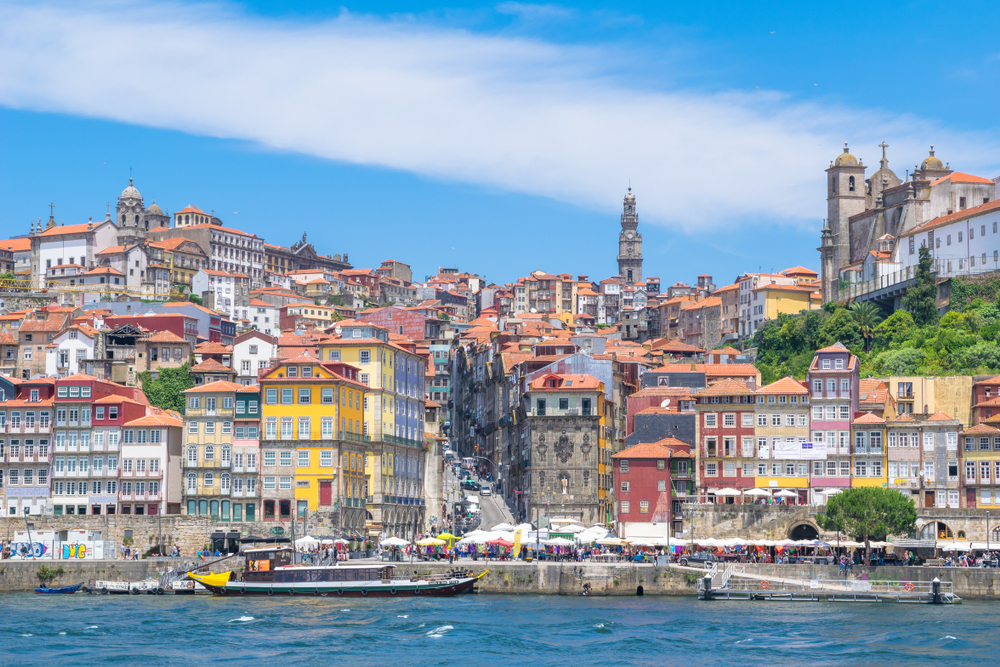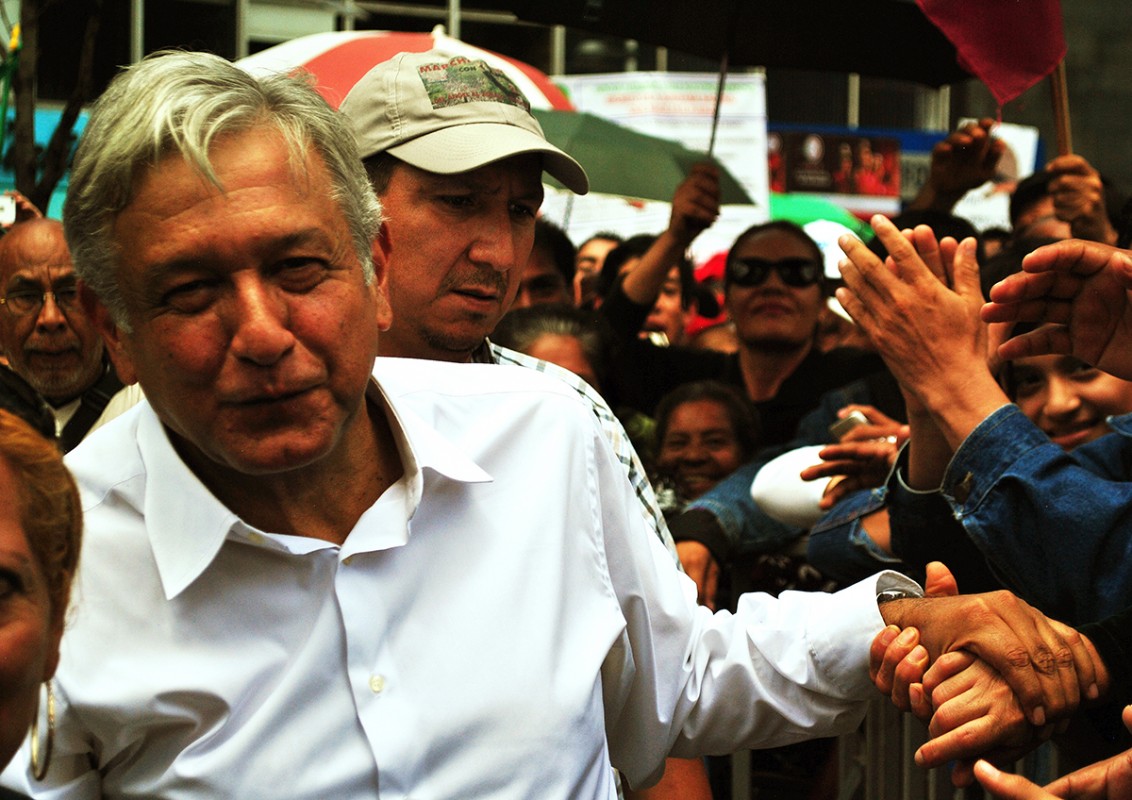An open letter published in early February by public health and members of the Portuguese civil society condemn the Mayor of Porto’s words against drug use and people who use them, including his desire to criminalise public drug use in the Northern city.
The open letter, organised by doctors, harm reduction activists, people who use drugs and other members of civil society, criticises several public declarations that Rui Moreira made against the Portuguese decriminalisation system. Moreira first spoke of the issues with the Portuguese approach after a police intervention on 6 January that cleared out an encampment of homeless people in Pasteleira, a neighbourhood in Porto that has been long recognised as a location for high-risk drug use. This encampment was home to 26 people, and also included an unsanctioned drug consumption space amongst the tents.
“What is concerning is that we are in a region [where] the State has failed… That failure is the lack of monitoring [the need for] support for this public situation, which has a social component, but is primarily about trafficking, that means that people that live here [in Pasteleira] don’t have their safety guaranteed”, he stated.
Moreira further elaborated that open air drug use, particularly injecting drugs, has compromised the safety and tranquillity of the locals, with syringes having to be frequently cleared from public spaces including schoolgrounds. He has since then called for further penalties for drug selling, as well as the criminalisation of drug use in public spaces.
The area of Pasteleira is home to one of Porto’s drug consumption rooms. Moreira also questioned their efficacy, stating: “We’ve set up a room, that’s a state-funded answer. The fundamental question is whether its presence simply centralises this phenomenon [within this neighbourhood], and if there aren’t similar measures taken neither by the state, nor by surrounding municipalities, is this still an approach worth pursuing?”
These comments triggered several criticisms from Portuguese parliamentarians, both at the state and national level. José Soeiro, a parliament member of the Left Bloc, condemned Moreira’s words, saying that his criticism went against decades of evidence, and the fact that trafficking as still criminalised.
Doubling down on his statements, Moreira later responded that “when you criminalise, you’re not looking to punish anyone. There is no one that is more punished than a drug addict. Criminalisation is to protect ones from others. There is a population there [in Pasteleira] that needs to be protected. There, there is the rule of the strongest, which are the drug traffickers.”
“The Portuguese drug system is a bestseller”
The open letter was published soon after these comments, condemning his words and promoting a national conversation around “more robust responses to this complex issue”.
It highlighted that widespread gentrification across the city has helped create these homeless encampments, which continue to grow given the city’s inadequate response to growing poverty and housing precarity. The fact that an unsanctioned drug consumption space was there was stated to be evidence of the state’s failure to provide a drug using space that’s open through the night; this unsanctioned space further served to provide care between those using drugs, namely to prevent overdoses.
“The Portuguese drug policy system is seen as a [global] bestseller due to its decriminalisation of drug possession and the integrated care responses it creates for people who use drugs. The proposal to criminalise public drug use, and further penalise use… will disproportionately impact those that live in poverty or are homeless, the same people that are currently the most harmed by the inequitable application of the current laws”, the letter outlines, further drawing from UN evidence of the benefits that decriminalisation brings to drug-related issues.
The letter concludes that “more robust humanist policies” are needed, integrating the multiple housing and wellbeing issues that are faced by people who use drugs problematically.
Moreira has yet to directly respond to the letter; however, when asked about it on the radio, he dismissed it as a “propaganda tactic” from the Left bloc: “that’s their position, which is normal”. This comment was bizarre, as no Left Bloc parliamentarian signed the letter, and may instead be a reaction to the party’s criticism in parliament.
The letter remains open for more signatures from other members of the public and civil society, and will be resent to parliamentarians and Rui Moreira’s office. “Once we close the second wave of signatures, the letter will be resent… to expand the debate on the rights of people who use drugs, namely to housing and safer spaces to use drugs, enlightening the achievements of harm reduction policies”, Joana Canêdo, one of the organisers of the open letter, told TalkingDrugs.
Canêdo explained that the letter had to be organised by individuals as most harm reduction and drug policy organisations in Portugal did not respond to Moreira’s comments.
“We hope that the letter is clear and informative and that it serves to steer the public dialogue towards the possibility of structural reforms in the scope of a social State, without retreats towards criminalisation, and to recall the achievements that made Portugal an international example in the field of drug policy”, they further stated.
“We aim not to create political backlash but to direct attention to the Human Rights’ violations inherent to the use of law enforcement actions to “cleanse” the “psychotropic territories” where neighbours understand the presence of PWUD as “dangerous” and “undesired others”, instead of recruiting public authorities to co-design comprehensive housing for people who use drugs and framing harm reduction and social inclusion as part of the development of the City.
To this end, we will keep informing public authorities of innovative solutions focusing on harm reduction, specifically those practices and policies which subvert the current status quo, such as discussing further safer supply, and aim to overcome the ill-informed advocacy for the criminalization of drug use.”
Progress forwards – not backwards – is needed to deal with these issues
Moreira’s comments unveil a growing tension between local politicians, inhabitants and increasingly visible signs of homelessness and poverty in Portugal. But reversing decades of rights-based drug policy successes to respond to wider issues in society will do little to fix them, and realistically further police already marginalised communities. It is therefore concerning that he dismisses the very valid opposition from experts and civil society as propaganda.
Moreira’s issues seem to be primarily with the public consumption of drugs and drug trafficking. Public drug use is a right enshrined within the Portuguese decriminalisation system, one that ensures that not only people with privileged access to private property are able to consume drugs safely. The creation of an unsanctioned drug consumption room in the homeless encampment is evidence of the need for such a space to maintain their safety, prevent further harms, and create a safe location for care. Issues around littering of drug equipment should be addressed with health-based interventions (such as safe disposal bins, education, and support for clean-up) rather than more criminalisation.
A wider conversation is needed to address the issue of drug trafficking, which remains illegal. Rowing back decriminalisation will not resolve any violence around drug trade, nor will it reduce any social issues aggravated by the market’s existence.
What is important to demonstrate to Moreira is that yes, decriminalisation is not resolving drug trafficking; but more criminalisation would also fail to reduce it or any of its related violence. You just have to look across Europe and any other continent for evidence of drug prohibition’s failure to drive down drug-related harms and violence.
Legal regulation could provide an avenue to remove the financial incentives for drug trade, as well as change the places where drug sales are happening. The arguments for drug control need to be made clear to Moreira and others with similar concerns. Funds to support both those camping and living in Pasteleira could be unlocked through taxed drug sales; it would also reinforce the idea that Portugal is truly a “bestseller” in drug policy, by keeping the nation at the forefront of progressive drug policies in Europe.
The letter is open for signatures until 15 March – it can be signed here.


